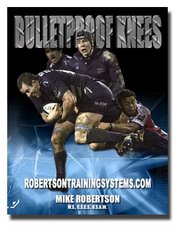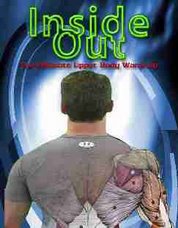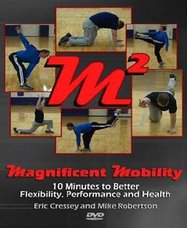Hey Mike, how are things going? Well, beyond the whole lacking sleep and stomach ulcers from stressing out for your seminar! I hope everything goes well :)
I've been listening the Strength Coach Podcast, and something that I was thinking of but never thought of asking came up...
How do Zerchers make your core work harder? There's no doubt (NO doubt!) that it DOES work your core harder, but I can't think of a good biomechanical justification. Shouldn't it work your lower back harder because the lever arm becomes longer?
Thanks!
Michael
Bah! Stress is overrated - I'm only trying to sell a condo, open a gym, and run a seminar this week. What do I have to complain about? ;)
Seriously, though, great question and it's one I've been looking to answer myself as well. Why do anteriorly loaded core exercises hit the core so much harder? Examples would be front squats, plate squats, Zercher squats, etc.
I think there are a few reasons this is true. First, I like to use the old-term by Ian King of "co-contraction." When you anteriorly load the weight, you get a natural co-contraction between your anterior and posterior core stabilizers. Unless you're an Olympic lifter or someone with a very balanced physique, co-contraction probably isn't a natural thing. Essentially you need your posterior stabilizers (spinal erectors), to keep you upright so you don't pitch forward and dump the weight - but that's the case in back squats and good mornings as well. I think the real difference is what happens to your center of gravity in these lifts, and the muscle groups you can rely upon to help develop the necessary core stability/stiffness.
We know when we squat, that the bar must stay over our feet. In a back squat with the placement of the bar (especially with a low bar placement), you can sit back much further and incur much more torso lean into the lift. While this will naturally hit the glutes and hamstrings harder, you can also rely predominantly on the spinal erectors to create your stability for you. Think about the physique of many powerlifters; they have huge erectors, but they're almost all in anterior tilt. Really strong lower backs and thighs, but more importantly not as strong in their anterior cores as they should be.
In a front squat, because the weight is loaded anteriorly you're forced into a more upright stance. This will not only have more balance on hip/leg development (between the quads, glutes and hamstrings), but on the core as well. You need contracture of the spinal erectors to keep you upright, but they are no longer your sole source of stability. You also recruit your anterior core to help you develop the "active stiffness" to stay upright and to transfer the power that your hips/legs are generating.
In a really roundabout way, I hope this is answering your question. Much like the front squat, the anteriorly placed loading of a Zercher squat forces you to maintain a more upright torso position. This, in turn, forces you to balance stiffness and stability between the anterior and posterior stabilizers of the body.
Whether my reasoning is 100% sound or not, the point is this - most people need to work on their anterior stabilizers, both with isolation and integration based exercises. Good luck!
Stay strong
MR
High Octane Corrective Exercise and Performance Enhancement | www.RobertsonTrainingSystems.com
Subscribe to:
Post Comments (Atom)









No comments:
Post a Comment